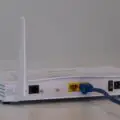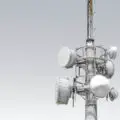Last Updated on May 1, 2023 by QCity Editorial Stuff
A 25 Mbps connection can support basic web browsing, email, and social media use for 2-3 devices simultaneously without experiencing significant problems. However, if multiple users are streaming videos or downloading large files, then the 25 Mbps connection may not be able to keep up and the performance may suffer.
Can 25 Mbps Support Multiple Devices?

Whether 25 Mbps can support multiple devices depends on a variety of factors, including the number of devices connected, the types of activities performed online, and the number of people using the internet simultaneously.
For light web browsing, email, and social media use, 25 Mbps may be sufficient for multiple devices. However, for activities that require more bandwidth, such as streaming high-definition video, playing online games, or downloading large files, 25 Mbps may not be enough to support multiple devices.
It’s important to consider the needs of each device and user when determining if 25 Mbps can support multiple devices. If multiple users need to perform bandwidth-intensive activities simultaneously, it may be necessary to upgrade to a higher internet speed plan to ensure that all devices can function properly.
Additionally, other factors, such as network congestion and the quality of the network infrastructure, can impact internet speed and the number of devices that can be supported on a network.
Importance of Internet Speed
Here are some key points on the importance of internet speed:
- Faster internet speeds allow for seamless online activities such as web browsing, streaming video, and online gaming.
- Slow internet speeds can result in lower-quality video, interruptions during playback, and longer wait times for web pages to load.
- Internet speed can impact productivity for those who work from home or use the Internet for business purposes, as faster speeds can improve efficiency.
- The appropriate internet speed depends on the number of devices connected to the internet, the types of activities performed online, and the number of people using the internet simultaneously.
- Internet speed is a critical factor when choosing an internet plan, as it can significantly impact the quality and performance of online activities.
Factors that Affect Internet Speed
There are several factors that can affect internet speed, including:
- Network congestion: When many people are using the same network at the same time, it can cause congestion and slow down the internet speed.
- Distance from the network source: The further a device is from the network source, the weaker the signal can become, which can result in slower internet speeds.
- Internet Service Provider (ISP) limitations: Some ISPs have bandwidth caps or other limitations that can impact internet speed.
- Hardware limitations: Older or outdated hardware, such as routers or modems, can limit internet speed.
- Interference from other devices: Other devices, such as microwaves or cordless phones, can interfere with Wi-Fi signals and impact internet speed.
- Viruses or malware: Malicious software can slow down internet speed by consuming bandwidth or sending data to other sources.
- Type of Internet connection: Different types of Internet connections, such as DSL, cable, or fiber optic, can have different speeds and limitations.
It’s important to identify the factors that may be impacting your internet speed in order to improve the quality and performance of your online activities.
Types of internet connections

There are several types of internet connections, each with its own advantages and limitations. Here are the most common types of internet connections:
- DSL (Digital Subscriber Line): This type of internet connection uses existing telephone lines to provide internet access. DSL speeds can vary depending on the quality and distance of the telephone line.
- Cable: This type of internet connection uses a cable TV line to provide internet access. Cable internet can offer higher speeds than DSL, but speeds can be impacted by network congestion.
- Fiber Optic: This type of internet connection uses fiber optic cables to transmit data, offering the fastest and most reliable internet speeds. However, it may not be available in all areas and can be more expensive than other types of internet connections.
- Satellite: This type of internet connection uses a satellite dish to transmit data to and from the internet. While satellite internet can provide access in remote areas, it can be slower and more expensive than other types of internet connections.
- Fixed Wireless: This type of internet connection uses radio waves to transmit data from a fixed antenna to a receiver on a building or tower. Fixed wireless internet can be faster than satellite internet, but may have limited coverage areas.
- Mobile Broadband: This type of internet connection uses cellular data networks to provide internet access on mobile devices. Mobile broadband speeds can vary depending on network coverage and congestion.
Factors That Affect the Number of Devices Connected in a Network
There are several factors that can affect the number of devices that can be connected to a network, including:
- Bandwidth: The more devices that are connected to a network, the more bandwidth is required to ensure each device can function properly. If there is not enough bandwidth to accommodate all the devices, it can slow down the network and impact performance.
- Network infrastructure: The type and quality of the network infrastructure, including routers and switches, can impact the number of devices that can be connected to a network.
- Network security: The security settings on a network can limit the number of devices that can be connected. For example, some networks may require devices to be approved or authenticated before they can connect.
- Network type: Different types of networks, such as wired or wireless, can have different limitations on the number of devices that can be connected.
- Network location: The physical location of the network can impact the number of devices that can connect, such as if the network is in a remote area with limited access to infrastructure.
- User behavior: The number of devices connected to a network can also be impacted by user behavior, such as if users are using bandwidth-heavy applications or downloading large files.
Tips for Optimizing Internet Speeds for Maximum Use
Here are some tips for optimizing internet speeds:
- Check your internet speed: Use an online speed test tool to check your internet speed. This can help you identify if your internet speed is slower than expected and can help you troubleshoot any issues.
- Upgrade your internet plan: If you regularly perform bandwidth-intensive activities, such as streaming video or playing online games, consider upgrading to a higher-speed internet plan.
- Limit the number of devices: Limit the number of devices connected to the network to ensure that there is enough bandwidth to go around.
- Use a wired connection: If possible, use a wired connection instead of a wireless connection, as wired connections tend to be more stable and faster.
- Update your router firmware: Make sure your router’s firmware is up to date to ensure it is functioning properly.
- Optimize your router settings: Adjust your router’s settings, such as the wireless channel and security settings, to optimize performance.
- Use a Wi-Fi extender: If you have a large home or office, consider using a Wi-Fi extender to boost the signal to areas with weak coverage.
- Clear your browser cache: Clear your browser’s cache and cookies regularly to improve browsing speed.
- Use an ad blocker: Use an ad blocker to reduce the amount of data your browser has to load, which can improve browsing speed.
- Contact your Internet service provider: If you are experiencing persistent issues with internet speeds, contact your Internet service provider to troubleshoot the issue.
References:
https://www.move.org/how-much-internet-speed/
https://www.rsinc.com/how-many-devices-can-25-mbps-support.php





